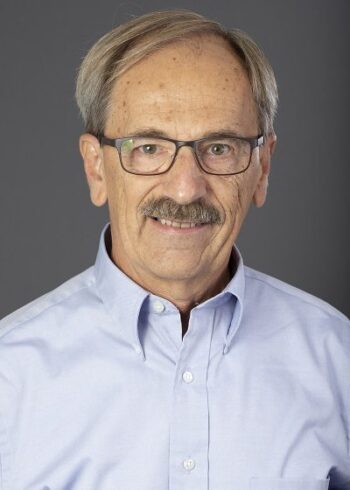From the Editor: We Need to Better Promote the Heroes of Engineering: Us

Throughout my career, I have been asked countless times about what exactly I do as a civil engineer. Some people ask just to be polite, but most legitimately didn’t know what a civil engineer does. It seems that we, as engineers, have not done as good a job promoting our field of expertise as other professions. Most people know what doctors do, even when doctors are described as specialists. So I considered it part of my job to educate folks about what we do, and I tried my best to include as many engineering disciplines as I could.
Throughout history, engineers have been recognized as leaders in society. There are so many names in history from Archimedes to Edison to Roebling to Kahn and others. These days, it seems many of the notable engineers are building corporations rather than facilities. Certainly, we need these types of engineers, but more of us are going to build things and fewer will build companies.
How to Better Educate the Masses
I recently had an amazing experience at a local elementary school. Several college of engineering students and faculty were invited to work (play) with kindergarten, first- and second-grade students and help them figure out what engineers can do. We created paper bridges, toothpick and marshmallow towers, and balloon-powered vehicles. This was the perfect opportunity to start future engineers on the “right” path.
Afterward, the young students asked questions. Surprisingly to me, some asked our college students what they wanted to be when they graduated. They heard answers such as “I want to design buildings” and “I want to make sure the water is clean enough to drink” and “I want to design a car that uses solar power.”
Some of these options are not taught well enough in our K-12 system. If children don’t know what engineers do, they likely won’t want to be one. There are many resources to help educate children about engineering. A series called Crash Course Kids (bit.ly/424t3GU) is an example. But one-on-one opportunities like we had are probably the best way to start an interest in engineering, besides being the most fun.
As children grow up, we need to continue to foster their natural curiosity of learning how things work. Carla Bailo of ECOS Consulting says on the website EngineerGirl.org, “Everything you see, touch, smell and sense has the fingerprint of an engineer. With an engineering degree, you can work on everything from spacecraft to textiles. Farms to urbans, technology and coding to refrigerators to medicine—the sky is the limit! Today, there is great emphasis on the role of engineers in developing new technologies for clean air quality, recycling, green materials and more. Engineers are needed more than ever for the breakthroughs we need to meet the climate challenge.”
These messages should be upfront in our middle and high schools. Many school systems have introductory engineering classes, and these classes have been an important influence on at least two of my grandchildren. My conclusion, based on a very small sampling, is that this works.
Share the Stories
Another important way to help people understand what engineers do is to tell personal stories of engineering heroes you know or—probably more important—stories about yourself. There are numerous articles written about the need for engineering heroes, but I believe the stories you tell about your experiences will carry more weight.
If you designed a bridge, and there are tens of thousands of people driving over that bridge every day, then you are a hero. If you created a more-efficient method of providing clean water, then you are a hero. If you have invented a knee-joint replacement that will last longer, then you are a hero.
As I tell my college students, there are thousands or possibly millions of people who will use your creations, and they will never know you are the one responsible. But you will know (and probably your kids, if you’re like me), and that is what’s important and should be part of the message we need to convey.
Endless Demand
There are discussions about whether there’s a shortage of engineers, and that can vary by discipline based on supply and demand. But one thing is certain: there will always be a demand for engineers. It’s therefore important for us to educate folks about what we do and how we work for the benefit of our society.
Every engineer is a potential hero, so tell everyone you know about our heroes. The children you talk to and choose engineering will be grateful. Those who choose another career will at least know what we do.

About Robert Schickel
Robert Schickel was born in New Jersey and received his BS in Civil Engineering degree in 1971 from Valparaiso University in Indiana. His career started as a bridge design engineer and expanded to include design of various transportation facilities, including highways, bridges, rail lines and stations, and airport runways. Mr. Schickel managed engineering offices ranging from 20 to 140 people. He also served as a consultant to a large utility company. Mr. Schickel currently resides in Indiana and serves as Adjunct Professor for the College of Engineering at Valparaiso University. He enjoys his retired life at his lake house, playing golf, listening to music and spending time with his family, especially his grandchildren.


